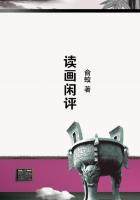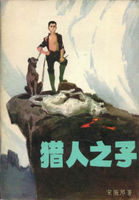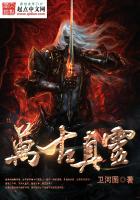(Conclusion) "I n Herr Marx's view, wages represent only the payment of that labour-time during which the labourer is actually working to make his own existence possible. But only a small number of hours is required for this purpose; all the rest of the working-day, often so prolonged, yields a surplus in which is contained what our author calls 'surplus-value', or, expressed in everyday language, the earnings of capital. If we leave out of account the labour-time which at each stage of production is already contained in the instruments of labour and in the pertinent raw material, this surplus part of the working-day is the share which falls to the capitalist entrepreneur. The prolongation of the working-day is consequently earnings of pure exploitation for the benefit of the capitalist" {D. K. G. 500-01}.
According to Herr Dühring, therefore, Marx's surplus-value would be nothing more than what, expressed in everyday language, is known as the earnings of capital, or profit. Let us see what Marx says himself. On page 195 of Capital , surplus-value is explained in the following words placed in brackets after it: "Interest, Profit, Rent". On page 210, Marx gives an example in which a total surplus-value of £3.11.0. appears in the different forms in which it is distributed: tithes, rates and taxes, £1.10; rent £1.80; farmer's profit and interest, £1.20;together making a total surplus-value of £3.11.0. -- On page 542, Marx points out as one of Ricardo's main shortcomings that he "has not {...} investigated surplus-value as such, i.e., independently of its particular forms, such as profit, rent, etc.", and that he therefore lumps together the laws of the rate of surplus-value and the laws of the rate of profit;against this Marx announces: "I shall show in Book III that, with a given rate of surplus-value, we may have any number of rates of profit, and that various rates of surplus-value may, under given conditions, express themselves in a single rate of profit." On page 587 we find: "The capitalist who produces surplus-value -- i.e., who extracts unpaid labour directly from the labourers, and fixes it in commodities, is, indeed, the first appropriator, but by no means the ultimate owner, of this surplus-value. He has to share it with capitalists, with landowners, etc., who fulfil other functions in the complex of social production. Surplus-value, therefore, splits up into various parts. Its fragments fall to various categories of persons, and take various forms, independent the one of the other, such as profit, interest, merchants' profit, rent, etc. It is only in Book III that we can take in hand these modified forms of surplus-value." And there are many other similar passages.
It is impossible to express oneself more clearly. On each occasion Marx calls attention to the fact that his surplus-value must not be confounded with profit or the earnings of capital; that this latter is rather a subform and frequently even only a fragment of surplus-value. And if in spite of this Herr Dühring asserts that Marxian surplus-value, "expressed in everyday language, is the earnings of capital"; and if it is an actual fact that the whole of Marx's book turns on surplus-value -- then there are only two possibilities: Either Herr Dühring does not know any better, and then it is an unparalleled act of impudence to decry a book of whose main content he is ignorant; or he knows what it is all about, and in that case he has committed a deliberate act of falsification.
To proceed:
"The venomous hatred with which Herr Marx presents this conception of the business of extortion is only too understandable. But even mightier wrath and even fuller recognition of the exploitative character of the economic form which is based on wage-labour is possible without accepting the theoretical position expressed in Marx's doctrine of surplus-value"{D. K. G. 501}.
The well-meant but erroneous theoretical position taken up by Marx stirs in him a venomous hatred against the business of extortion; but in consequence of his false "theoretical position" the emotion, in itself ethical, receives an unethical expression, manifesting itself in ignoble hatred and low venomousness, while the definitive and most strictly scientific treatment {498} by Herr Dühring expresses itself in ethical emotion of a correspondingly noble nature, in wrath which even in form is ethically superior and in venomous hatred is also quantitatively superior, is a mightier wrath. While Herr Dühring is gleefully admiring himself in this way, let us see where this mightier wrath stems from.
We read on: "Now the question arises, how the competing entrepreneurs are able constantly to realise the full product of labour, including the surplus-product, at a price so far above the natural outlays of production as is indicated by the ratio, already mentioned, of the surplus labour-hours.
No answer to this is to be found in Marx's theory, and for the simple reason that there could be no place in it for even raising that question. The luxury character of production based on hired labour is not seriously dealt with at all, and the social constitution with its exploitatory features is in no way recognised as the ultimate basis of white slavery. On the contrary, political and social matters are always to be explained by economics"{501}.
Now we have seen from the above passages that Marx does not at all assert that the industrial capitalist, who first appropriates the surplus-product, sells it regardless of circumstances on the average at its full value, as is here assumed by Herr Dühring. Marx says expressly that merchants'
profit also forms a part of surplus-value, and on the assumptions made this is only possible when the manufacturer sells his product to the merchant below its value, and thus relinquishes to him a part of the booty.















